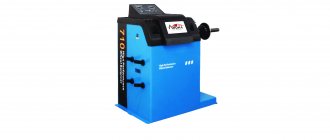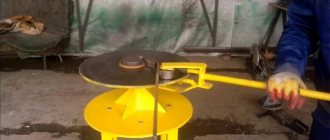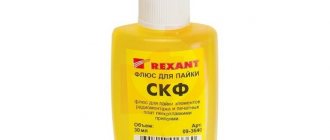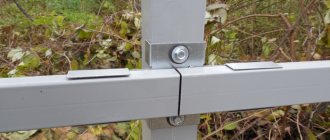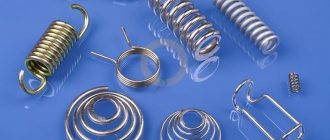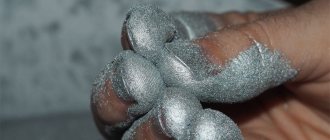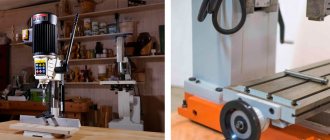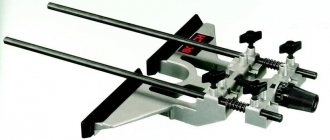DIY water filter for a vacuum cleaner from an aluminum pan and a plastic bottle
Buying household appliances is a very responsible process. You need to take into account a lot of nuances so as not to get into trouble. But many people are negligent about this procedure and, as a result, remain dissatisfied with the purchase.
Today we will show you an amazing master class in which our compatriot modernizes a vacuum cleaner with a modest power of 1500 W.
DIY vacuum cleaner filter
YOU WILL NEED
- aluminum pan
- drill
- foam rubber
- plastic bottle
- screwdriver
- metal adapter
- corrugated hose
- Replace the thick filter with foam rubber.
- Cut off the bottom of the aluminum pan and drill 3 holes in the remaining part as shown in the photo. Attach the pan to the vacuum cleaner body using self-tapping screws.
- Make several holes around the neck of the plastic bottle.
- Place the bottle in the pan and pour half a liter of water into it.
- Place the metal adapter into the exhaust port of the vacuum cleaner and secure it with screws.
- Connect one end of the hose to the adapter and thread the other into the bottle.
Agree, amazing design! For a detailed master class on creating a water filter for a vacuum cleaner, watch this video.
If you were inspired by this original idea for your home, be sure to share the article with your friends!
Did you like the article? Subscribe to the channel to stay up to date with the most interesting materials
Source: sam.mirtesen.ru
How to make a water filter for a vacuum cleaner with your own hands?
Probably every housewife will agree that the house cannot do without such an important thing as a vacuum cleaner. Among the great variety of models, experts advise choosing ones with an aquafilter in order to get better cleaning results. With such models, dust absorption occurs more efficiently. They have recently become increasingly popular. If your model does not have a device that contains water, which allows for better cleaning, then do not be upset.
How does a water filter work?
Even if you recently purchased a vacuum cleaner without a water filter or you have a slightly outdated model at your disposal, don’t worry, below we’ll look at how you can make a water filter for your vacuum cleaner model with your own hands.
Vacuum cleaners with water filters: pros and cons
Recently, vacuum cleaners with aqua filters are incredibly popular. With their help, you can really clean not only, but even the air. When you use an aqua vacuum cleaner, it is not at all necessary to ventilate the room, because the air becomes completely clean after cleaning.
Perfect cleansing with water
Some modern models can form a large amount of foam, but this problem can be easily solved by having a high-quality defoamer. Before purchasing or independently converting a regular vacuum cleaner into an aquatic device, it is worth knowing all its features and advantages. The main ones include the following:
- device reliability
- quite long service life
- multifunctionality
- The aqua vacuum cleaner perfectly cleans the air and makes it humid
- has a high power rating
- does not require additional maintenance, which is expensive
- There is no unpleasant odor during operation
- it is very convenient to use.
Aqua vacuum cleaners also have some disadvantages, but they are minor and can be easily tolerated. The disadvantages of the device include:
- quite large parameters
- These vacuum cleaners are heavy
- are expensive
- may make loud noise.
Vacuum cleaner with water filter
On the website you can also read what products are available for washing vacuum cleaners.
Two options for assembling a cyclone
Most woodworking and cutting power tools are equipped with a connection to a vacuum cleaner. This convenient function eliminates the accumulation of dust in the apartment, but when performing large volumes of work, you have to frequently clean the filter. A homemade high-capacity cyclone, which can be assembled in two versions, will help increase productivity.
Cyclone from PET barrels
A homemade cyclone with a large capacity is ideal for a home woodworking workshop. A PET barrel with a lid was used in the manufacture of the filter housing. The capacity depends on the power of the vacuum cleaner. For a low-power unit, it is undesirable to take a barrel with a capacity of more than 5 liters.
Step-by-step manufacturing of a cyclone includes the following steps:
A holder for a car filter is attached to the inside of the steel strip barrel lid. The design resembles a pyramid of three petals connected at the top by a pin. A hole is cut in the center of the lid to connect the vacuum cleaner hose.
The car filter is placed on the holder. Place a wide washer on the protruding pin in the center and tighten the nut firmly. The filter must be pressed tightly against the lid, otherwise dust from the barrel will penetrate through the pipe into the vacuum cleaner.
A piece of plastic pipe is fixed in the hole in the lid. Through the outlet pipe, clean air will be drawn in by the vacuum cleaner. There is a factory filter inside the unit. Do not pull it out to increase suction power. The membrane filter will additionally protect the fan from dust.
A car filter needs additional protection. A nylon women's stocking is pulled over it to protect against small dust particles. Additionally, the filter is protected with a galvanized casing. The bumper will prevent large solid particles from damaging the filter element.
To suck up debris, an inlet pipe made from a piece of PET pipe is cut into the side wall of the upper part of the barrel. Inside the container, the element is secured with a clamp. The tube is positioned with an inclination towards the bottom and touching the side surface of the barrel.
The disadvantage of PET barrels is their thin soft walls. While the vacuum cleaner is operating, a vacuum is formed inside the container. To prevent the walls from “playing,” the barrel is reinforced with a steel strip.
A cyclone made from a barrel together with a vacuum cleaner represents an overall design. For ease of use, the frame is made of plywood. Four wheels are attached to the bottom.
A filter with a vacuum cleaner is installed on top of the frame. All elements are securely fixed, but allow for easy dismantling.
The hose from the vacuum cleaner is fixed to the pipe on the filter cover. A corrugated hose is placed on the suction pipe of the cyclone. Check the sealing of the joints, otherwise if there are even the slightest cracks, productivity will decrease.
Why do you need an aqua filter?
The essence of a water filter is that it not only fights dust, it also simultaneously performs wet cleaning, helps in the fight against bacteria, pathogens, pet hair, mites, and also fills the room with freshness, cleanliness and humidifies the air.
The essence of an aquafilter is a tank filled with water. The device has a separator that operates on the principle of a cyclone, thus setting the container of water in motion. The mechanism sucks in air contaminated with dust and dirt and passes it through the water in the tank. Thus, dust particles bind to water, the flow then passes through additional filters, and at the output we have clean, humidified air.
Unlike a conventional dry vacuum cleaner, a vacuum cleaner with a water filter must be cleaned after each use. To do this, you need to rinse the container and thoroughly dry all the filters that are in it. If this is done poorly, there is a possibility of bacterial growth.
Two concepts for construction vacuum cleaners
The task of any vacuum cleaner, especially a construction one, is to remove as much dust and debris as possible without raising dust into the air. In this regard, designers are struggling with various filters, two of which are the main ones. Let's consider them.
Device with water filter
Aqua vacuum cleaners are produced industrially, including for the home. The essence of the work is as follows: the input flow of contaminated air passes through a container of water, dust remains in the liquid, and from the outlet pipe we receive purified air.
Read also: How to clean a copper candlestick at home
Homemade water filter for a regular vacuum cleaner - video
The advantages of this method: perfect cleaning even from the smallest particles. Disadvantages: greater power of the unit is required (a significant part of the energy is lost in overcoming the resistance of water), water vapor has a detrimental effect on the electric motor.
For manufacturing you will need the following materials:
- plastic container with a tight-fitting lid
- plastic sewer pipes of suitable diameter
- sealant
- aluminum tape (you can use tape to connect floor insulation or linoleum).
We make two holes in the lid so that the pipes fit into them as tightly as possible. The receiving pipe must be immersed in water (the liquid level should be approximately 1/3 of the height of the container). The outlet pipe socket is located as close to the top as possible to prevent splashes from being drawn into the vacuum cleaner.
We treat the joints with sealant, allow them to dry and harden. Actually, the design is ready. Next, we assemble the flanges for connecting the hoses. This is why you need to guess the diameter so that you don’t have to make adapters. We attach the working part of the hose to the intake pipe to suck up dust. We attach the vacuum cleaner hose to the outlet pipe. We seal the connections using aluminum tape.
The vacuum cleaner is ready. Unlike the “cyclone”, it cannot handle heavy construction waste, but ideal filtration is guaranteed. It is pointless to use a vacuum cleaner with a power less than 1500W; cleaning efficiency will approach zero.
Cyclone filter
This vacuum cleaner is perfect for cement dust and small pebbles; making it yourself is not at all difficult. The advantage of the unit: simple technology, there is no risk of moisture getting into the vacuum cleaner. Disadvantage: insufficient degree of purification; some of the dust (light fractions) ends up in the main filter.
A cyclone can be made from a cylindrical container; a conical narrowing at the bottom is not necessary. However, if your design provides a separate container for collecting construction waste, then the separator itself (cyclone) is made in the form of a cone.
It can be cut out of plastic, tin or thick cardboard. Or you can use a ready-made solution: a traffic cone. A construction vacuum cleaner for the home does not have to be big.
The design of the separator is calculated based on the power of the donor - your home appliance. The main advantage is that the device is easily separated from the vacuum cleaner, and you can use it as usual.
Types of aquafilters
There are two types of water filters:
The work of this type of aqua filter is to separate air from dust particles due to centrifugal force. Contaminated particles that enter the filter remain in the water without entering the air of the living room. The main advantage of vacuum cleaners of this type is the higher quality of cleaning compared to others, and they are also durable. However, separate models are not cheap.
Vacuum cleaners of this type have a fairly simple design. These devices cope better with coarse dust, but they have a hard time with fine dust. However, this drawback can easily be corrected by installing additional filters. One of the inconveniences of using a hookah filter is the need for frequent, systematic washing and high-quality drying. In addition, it is equipped with a fairly small liquid reservoir.
How to make a filter for a modern vacuum cleaner with your own hands
If you decide to make a filter for a vacuum cleaner with your own hands, and the power of your home vacuum cleaner wants to be better, you can also correct it at the same time. What to do about it? First of all, it is necessary to replace the paper component on the incoming filter with a foam rubber one. This will enable the unit to suck in dirt and dust with greater force. With most inexpensive modifications of vacuum cleaners, suction power is lost due to the dense material on the filter. Therefore, it can also be replaced with a less dense one, thus increasing the overall power of the device. But at the same time, small particles of dust will linger on the filter just as well.
Before you start assembling a homemade aqua filter, you need to prepare all the materials you will need. Among them:
- Aluminum pan.
- A six-liter plastic water bottle.
- Three screws.
- Metal adapter.
- Flexible hose.
- Four screws.
So, let's start by cutting out a circle in the bottom of an aluminum pan. Its diameter should be about 3 cm smaller than the diameter of the pan. Next, you need to attach this structure to the vacuum cleaner with self-tapping screws in the place where the air comes out. First you need to drill holes in the pan.
Simple materials – great end result
Take a plastic bottle and put it in a saucepan. Several holes must be made in the eggplant so that clean, filtered air can escape. Pour about 1-1.5 liters of water into it. By analogy with a purchased vacuum cleaner, air contaminated with dust will penetrate through the water, in which the dirt will remain.
Using metal adapters and screws, this entire structure is attached to the exhaust port of the vacuum cleaner. On one side, we attach the corrugated hose to the adapter, and on the other, we make a slot in it, which will give the effect of a whirlpool inside the eggplant.
Operating principle of the unit
Before you make an industrial vacuum cleaner, you need to find out the principle of its operation.
The device is presented in the form of three main components: The motor, using a pump, creates a vacuum of air masses under the vacuum cleaner brush. Dirt and dust are sucked into the unit. The air is cleaned of dust by a filter. When arranging a homemade construction vacuum cleaner, a multi-level air mass purification system is used. This figure should be 90%. When choosing the main components, experts recommend taking into account the power of the motor and suction.
A vacuum cleaner is needed to remove dust and debris during construction.
You can independently assemble an industrial vacuum cleaner for dry and wet cleaning, as well as washing, built-in, steam units. The dry assembly tool is equipped with a filter, presented in the form of a paper or fabric bag. A paper bag is used once, and a fabric bag is used repeatedly. This unit is characterized by high filtration efficiency. A construction vacuum cleaner for dry cleaning has a decreasing suction power as the bag fills.
The second option for a homemade filter is a separate one
Now we will figure out how to make a water filter that is considered separate. For this you need to prepare the following:
- Separator
- Container that will contain water
- modern version of the pump
- small fan
- parts that can be used to secure all elements.
When everything is prepared, install the casing directly on the dust collector. Next, you need to carefully attach the pump on which the rubber ring will be located. In order to significantly reduce the noise from the device, which occurs directly during operation, it is enough to glue a small amount of polyethylene to the bottom of the vacuum cleaner.
Using scrap materials
As you can see, with a little time, a minimum of effort and financial costs, you can build yourself a pretty good water filter for the most ordinary vacuum cleaner. There is nothing complicated in such work; you don’t even need to have any special knowledge. It is enough to follow the instructions we provide and you will definitely get a high-quality water filter, which in its characteristics will not differ much from a purchased and more expensive device. If the assembly process was successful, then you can immediately try out the fruits of your labors.
We recommend reading - what to do if the washing vacuum cleaner does not work.
Source: technosova.ru
Water tank cleaning process
Before cleaning, you need to check the operation of the vacuum cleaner , and if everything functions correctly, then start working.
First, all debris is removed from the surface of the water with a net, then the walls of the pool, which are located above the water, are cleaned with vacuum cleaners.
This can be done with a simple brush. After this, you need to walk along the wall where the water line is located . There is often more dirt there than below. After this, you need to go lower and reach the bottom of the pool.
Depending on the size of the pool, it may take an hour or two to completely clean the pool. After completing work in any of the vacuum cleaners, you need to remove the filter (cotton wool, padding polyester), clean it and dry it.
It is important to remember that you can turn on the vacuum cleaner when the pool is empty . Make sure that no water gets on the electronics, otherwise a short circuit may occur.
To clean the pool less often, you need to keep it clean with special chemicals¸ and cover it with a lid when not in use.
You will find a lot of important and useful information about pool vacuum cleaners in this section.
How to make a water filter for a vacuum cleaner with your own hands
Even the most ordinary household vacuum cleaner can handle a small amount of dust. However, a container or bag type vacuum cleaner is not suitable for cleaning a large house or heavily polluted premises (construction, industrial facilities, etc.).
The fact is that the garbage tank will become clogged very quickly, and the suction power will drop.
Moreover, some of the dust is not retained in dry dust collectors, but comes out again, polluting the indoor air.
Vacuum cleaners with a water filter cope much more effectively with this task .
The principle of operation of a homemade vacuum cleaner with an aqua filter
Under natural conditions, even the smallest particles of dust are bound by water - rain, snow, dew, fog. The same principle is used in vacuum cleaners with an aquafilter: the water vortex created inside the aquafilter collects even fine dust, which no solid filter element is capable of catching.
Modern models of vacuum cleaners with a water filter not only retain up to 99.9% of sucked dust and dirt, but also purify the air and work as humidifiers.
Such devices are very convenient and economical to use - there is no need to regularly buy expensive bags and other consumables, since all the dust settles in a water tank.
To clean it, just drain the dirty water and rinse the container. The only significant drawback of vacuum cleaners of this type is the high price.
Types of cleaning systems
The efficiency and performance of aquafiltration vacuum cleaners depends on the type of cleaning system they use. Separator and hookah water filters are installed in household cleaning devices. Let's take a closer look at each of them.
Separator water filter
The separator type of aquafilters works on the principle of a centrifuge using centrifugal force. Dust and dirt entering the whirlpool through the vacuum cleaner hose are deposited on the walls and bottom of the container. The purified air is released into the environment.
The separator water filter works using the cyclonic principle
The advantages of vacuum cleaners with a separator-type aqua filter include:
- no need to buy and install additional filters;
- very high (almost one hundred percent) level of purification;
- ease of use and maintenance.
The relative disadvantages of such devices include:
- increased noise level (although this is not observed in high-quality and, accordingly, more expensive vacuum cleaners);
- high cost.
Hookah aqua filter
The hookah water filter is similar in principle to a hookah. It has a simple and reliable design. This filter perfectly collects not only small dust particles, but also quite large debris. To improve the quality of filtration, vacuum cleaners with a hookah system use air filters, among the latter the most common are carbon and paper. A number of air filters can provide several stages of cleaning.
The hookah water filter is significantly cheaper, but also less effective.
Other advantages of hookah-type filters include:
- high cleaning efficiency (about 99%, depending on the class of filter used);
- relatively low cost.
The disadvantages of vacuum cleaners with hookah filters are as follows:
- insufficient filtration of very small particles;
- the need to clean and dry the filter after each cleaning;
- the need to periodically replace filters (usually once every 3–6 months);
- the need to frequently replace water in the tank due to the small volume of the tank;
- the need to use a defoamer;
- The increased power of the electric motors used in such vacuum cleaners implies high energy consumption.
What is a water filter for?
With the help of a water filter built into the vacuum cleaner, you will be able to effectively wet clean the room, get rid of bacteria, pathogens, dust mites, animal hair, fill the air with cleanliness, freshness and humidify it.
The principle of operation of the aquafilter of a vacuum cleaner
By and large, an aquafilter is a device that has a reservoir filled with water. The separator in the device, which operates as a cyclone, moves a container of water. The vacuum cleaner sucks in air with particles of dust, litter and dirt, then it all passes through water, in which all the contaminants settle. After this, the air passes through filters, where it is finally cleaned and humidified. As a result, clean and fresh air returns to the room.
After each use of a vacuum cleaner with an aqua filter, you need to wash the container and thoroughly dry all existing filters to prevent the growth of bacteria.
Basic criteria for choosing a vacuum cleaner
When buying a vacuum cleaner with a water filter, you need to pay attention to the main parameters that affect the quality of cleaning and the price of different models:
- Filter type. We already mentioned above that vacuum cleaners can have different types of filters:
- Separator type water filter. It works like a centrifuge, separating water, debris and air. The water is in constant motion, and dust and debris settle at the bottom of the flask. Centrifugal force helps break up the air containing dust particles, preventing them from passing out. Such filters do not need frequent replacement and are easy to clean.
- There are also devices with a hookah type filter. They suck up large fractions of dust well, but to remove small debris particles from the air, the vacuum cleaner requires additional filters (for example, HEPA). They have a number of disadvantages: during cleaning, it is necessary to frequently change the water in the flask; over time, the power of the device decreases; after cleaning, all filters require cleaning and drying, and consume more electricity.
- Cleaning quality level. It depends on the price of the device, additional filters and power. The more expensive the model, the higher the level of room cleaning. Premium vacuum cleaners can even rid rooms of bacteria, fungal spores, pollen from various plants with an allergic effect on the body, and dust mites.
- Volume of the flask. The size of the tank determines the number of water changes when cleaning rooms. For example, when using a vacuum cleaner with a 1 liter flask, you will have to replace the water every 20 minutes. If the capacity is larger, then replacement will be made less frequently. For an apartment, you can choose devices with a 2-liter flask; for cleaning large rooms, you need to purchase a vacuum cleaner with a capacity of 10 liters.
- Engine power. We try to give preference to models with higher power levels. They vacuum better, but are also more energy-consuming.
- Dimensions. The volume of the water flask directly affects the dimensions of the entire device. The price also increases in direct proportion. Large devices require storage space, and in a city apartment such a device will take up a lot of space.
- Additional functions. Many vacuum cleaners do not only dry cleaning, but also wet cleaning. As a rule, devices are sold in basic configuration. Additional attachments and brushes must be purchased separately. This allows you to avoid overpaying extra money for unnecessary functionality.
- Price. The Rainbow company takes the lead among “water” vacuum cleaners. In Russia, models of this brand have no equal, but the cost of the vacuum cleaner is high - from $1000. The middle price segment is occupied by Philips, Thomas. More affordable economy-class vacuum cleaners are Samsung, Vitek, and Zelmer, which can be purchased for $300. and be completely satisfied with their work.
Types of water filters
There are two types of water filters:
- Hookah bars have a simple design. The vacuum cleaner does not cope very well with fine dust, but it absorbs large particles completely. This can be corrected by installing additional filters in it. The disadvantage of a hookah filter is that it needs to be systematically washed and thoroughly dried. In addition, it has a small water capacity.
- Separate. This type of water filter separates dust and air particles using centrifugal force. Contaminated particles that enter the filter settle in the water and are not released back into the room. The advantages of separate type vacuum cleaners are high quality cleaning and durability. Such models are expensive.
Operation of a separate aqua filter
Communities › DIY › Blog › Aqua filter for vacuum cleaner.
Based on numerous requests from workers)) Continuing the post about the vacuum cleaner and cyclone filter: www.drive2.ru/c/501866036258145019/ Initially I didn’t plan an aquafilter, but last night I went to get a radiator and pipes and thought why not... I bought the parts.
I assembled it half an hour before going to bed.
I tested it in the morning, the splashes reach the outlet pipe a little, but the vacuum cleaner is dry.
Now everything is fine.
Today I opened up the floors.
Either later or tomorrow I’ll do a test drive, I’ll write the result in the comments.
The test drive result is below in the comments.
Cyclone vacuum cleaner for workshop
Another option for a construction vacuum cleaner, but with a more complicated design. This replacement for the commercial model is made from an old vacuum cleaner, a plastic container, and a cyclone filter.
The peculiarity lies inside the design - it is a metal casing to protect the filter.
For ease of use, the homemade model is mounted on a trolley, also assembled with your own hands. Thanks to this modification, the vacuum cleaner can be easily moved around the workshop or around the yard - for cleaning up garbage in the local area
The cost of homemade products is determined by spending on individual parts. An old, but working, household vacuum cleaner was found in the pantry, a plastic tank was purchased for 500 rubles, a filter for a Gazelle car - 180 rubles. It's easy to calculate the total cost.
You will learn how to make a cyclone for a vacuum cleaner from our article. It describes the assembly process in detail.
Assembly order:
To check the functioning of the homemade unit, all that remains is to connect to the power supply. The suction power of the unit should be the same as that of the old vacuum cleaner, if the engine has retained its performance.
If you don’t have an old vacuum cleaner, you can buy a used model from an ad – online shopping portals offer many options. Most likely, an outdated device will cost no more than 1 thousand rubles.
The following article will introduce you to the rating of industrial cyclone vacuum cleaners, which is worth reading for both home craftsmen and future buyers.
